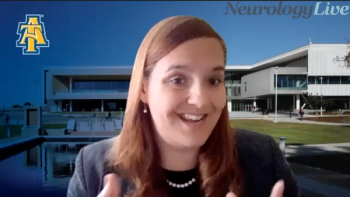
The associate professor at the North Carolina Agricultural and Technical State University provided insight on the widespread feasibility of a new initiative that aims to teach and attract young professionals to the MS field. [WATCH TIME: 4 minutes]

The associate professor at the North Carolina Agricultural and Technical State University provided insight on the widespread feasibility of a new initiative that aims to teach and attract young professionals to the MS field. [WATCH TIME: 4 minutes]

The associate neurologist at Brigham and Women’s Hospital discussed the potential of a nasal anti-CD3 monoclonal antibody, foralumab, and its impact on biomarkers specific to patients with progressive multiple sclerosis.
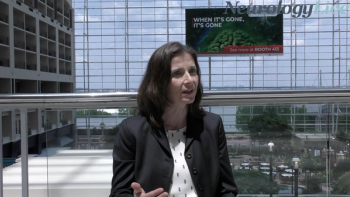
The health research assistant at the Shepherd Center discussed the importance of interventions that address mental health for patients with multiple sclerosis, including counseling and support groups. [WATCH TIME: 2 minutes]
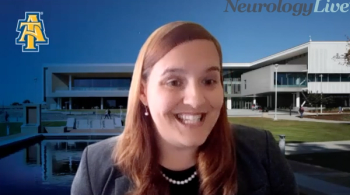
The associate professor at the North Carolina Agricultural and Technical State University discussed a newfound initiative that helps encourage more professionals in multiple sclerosis and across neurology. [WATCH TIME: 4 minutes]
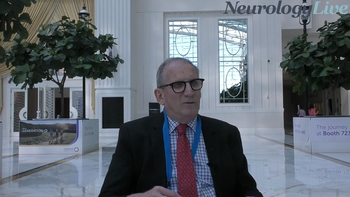
The president and chief executive officer of Mapi Pharma discussed the differences and additional benefits from glatiramer acetate depot, a new intramuscular extended-release version of the known multiple sclerosis medication. [WATCH TIME: 4 minutes]

The head of the MS Center at the University of Basel discussed an analysis presented at CMSC’s Annual Meeting, focusing on the effects of BTK inhibitor evobrutinib on neurofilament light levels.
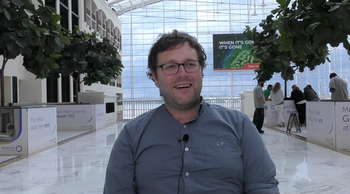
The postdoctoral researcher at the Johns Hopkins Multiple Sclerosis Center shared his perspective on the use of spinal cord atrophy in clinical practice to measure disease progression in MS and how it might become more accessible. [WATCH TIME: 4 minutes]

After a previous analysis showed that natalizumab dosing every 6 weeks can decrease the risk of progressive multifocal leukoencephalopathy, new data showed no differences in patient-reported outcomes vs treatment every 4 weeks.

Mind Moments®, a podcast from NeurologyLive®, brings you exclusive interviews with Riley Bove, MD; Blake E. Dewey, PhD; Bruce Cree, MD, PhD, MAS; John DeLuca, PhD; Shuvro Roy, MD; and Tanuja Chitnis, MD. [LISTEN TIME: 26 minutes]

The online tool was evaluated in a cohort of 501 patients and healthcare providers, showing positive trends in 9 of 11 outcomes assessed. Notably, disease-modifying therapy start, adherence, and long-term mental health were all improved in the intervention group.
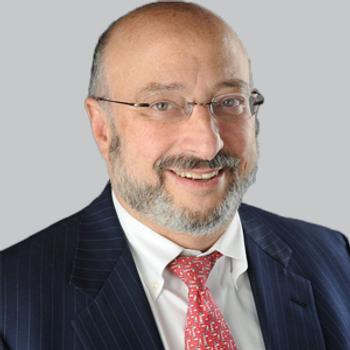
Clinician-perceived cognitive deficits of patients with multiple sclerosis were significantly predicted by multiple factors, including cognitive scores, depression, and physical disability, but notably not fatigue.
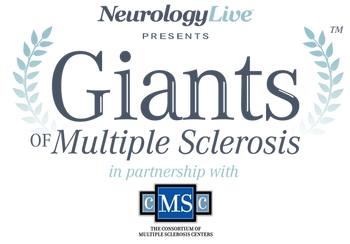
The 1st annual awards ceremony was held during the CMSC Annual Meeting in National Harbor, Maryland.

Individuals with progressive MS demonstrated stable scores on Expanded Disability Status Scale, with no 12-week confirmed disability progression detected.
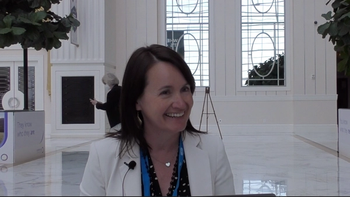
The associate professor of neurology at UCSF Weill Institute for Neurosciences discussed the findings of a social media listening study that suggested women with multiple sclerosis used social media platforms to discuss treatment during and around pregnancy. [WATCH TIME: 4 minutes]

The form, which is freely available through the Epic and Cerner EHR platforms, was developed to streamline and standardize patient data collection to allow clinicians more time with patients and more consistent information.
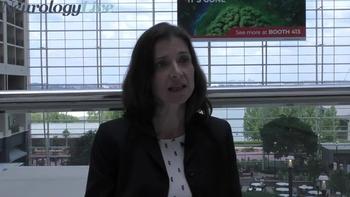
The health research assistant at the Shepherd Center discussed the need to improve access to interventions that improve the overall happiness of individuals with multiple sclerosis. [WATCH TIME: 4 minutes]
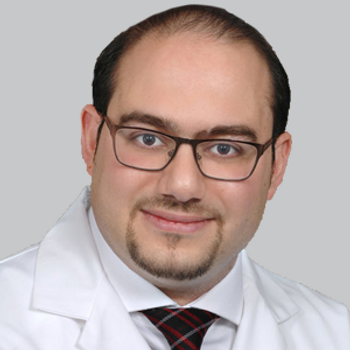
A large number of patients with MS were clustered in an area that may have had high exposure levels of aluminum, which the study investigators noted warrants future research.
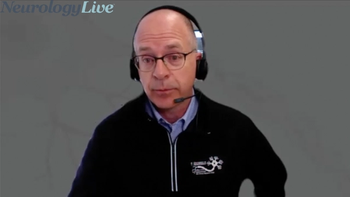
The professor of neurology at the University of Saskatchewan discussed the need to improve therapeutics aimed at improving neurodegeneration in patients with multiple sclerosis. [WATCH TIME: 3 minutes]
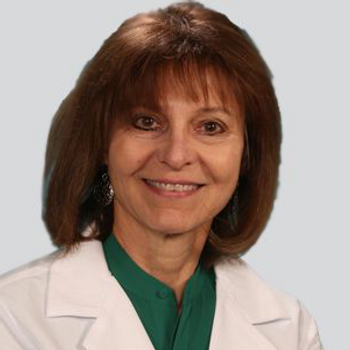
At the end of the open-label extension period, 77.5% of patients reported treatment-emergent adverse events and 27.7% had a treatment-related TEAE.
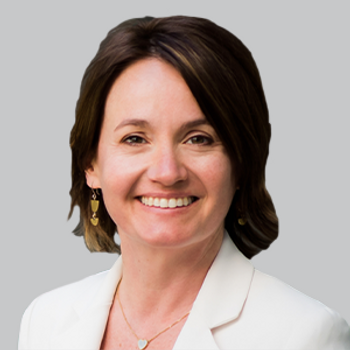
Investigators utilized a social media listening tool to evaluate and scale mentions of disease-modifying therapy use by women with multiple sclerosis, with the majority of concerns focused on safety and treatment reinitiation in the postpartum period.

Although there were no differences between herpes simplex virus types 1 and 2, patients with MS did show increased levels of EBV capsid antigen and EBNA compared with controls.

Both ozanimod doses were associated with greater median reductions in plasma neurofilament light and mean improvements in SDMT score change than interferon beta-1a at month 12 of treatment.

The professor of neurology at the University of Saskatchewan discussed his presentation at the 2022 CMSC Annual Meeting on using ribonucleoprotein A1 antibodies to drive neurodegeneration in multiple sclerosis. [WATCH TIME: 4 minutes]
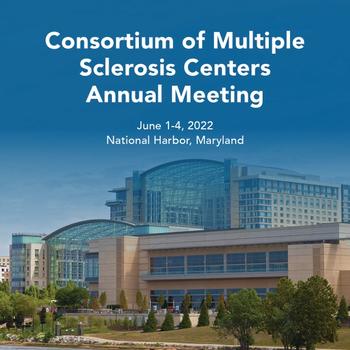
June Halper, MSN, APC-C, MSCN, FAAN, the chief executive officer of the Consortium of Multiple Sclerosis Centers, shared her perspective on what to expect from this year’s annual meeting, which takes place June 1-4, 2022, in National Harbor, Maryland.
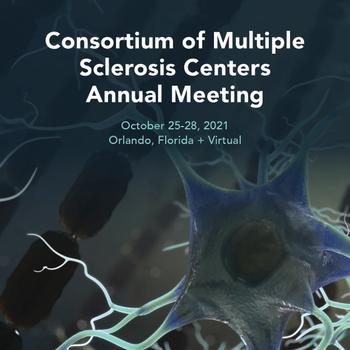
The NeurologyLive® team has compiled a roundup of our discussions with leaders in the multiple sclerosis field following the 2021 Annual Meeting of the Consortium of Multiple Sclerosis Centers (CMSC).
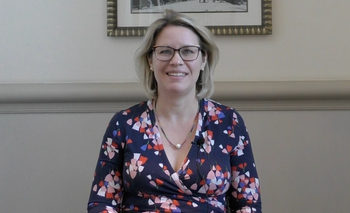
Discussing cognitive behavioral therapy for patients with MS, the associate professor of Physical Medicine and Rehabilitation and research nonclinical psychologist at the University of Michigan Medicine mentioned different therapeutic options that can benefit this patient population. [WATCH TIME: 3 minutes]

Anna Kratz, PhD, associate professor of Physical Medicine & Rehabilitation, University of Michigan Medicine, spoke to the benefits of a multifaceted approach to managing fatigue for patients with multiple sclerosis.

The associate professor of Physical Medicine & Rehabilitation and research nonclinical psychologist at the University of Michigan Medicine discussed challenges when addressing fatigue, as well as the need to integrate digital tools for patients with MS. [WATCH TIME: 4 minutes]

The associate professor of Physical Medicine & Rehabilitation and nonclinical research psychologist at University of Michigan Medicine discussed the complexities of fatigue as a symptom following her presentation at CMCS 2021.
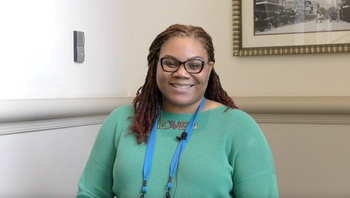
The founder and CEO of Joi Wellness Group Multiple Sclerosis Center described motivations behind the evaluation of ocrelizumab (Ocrevus; Genentech) in minority populations with multiple sclerosis.